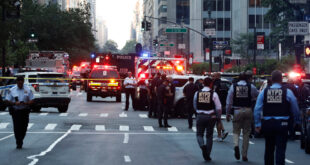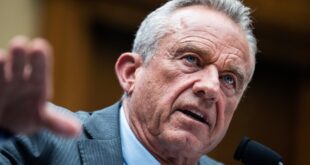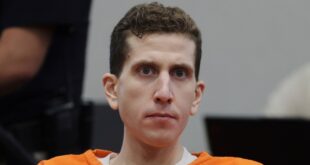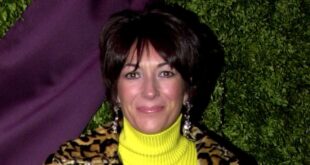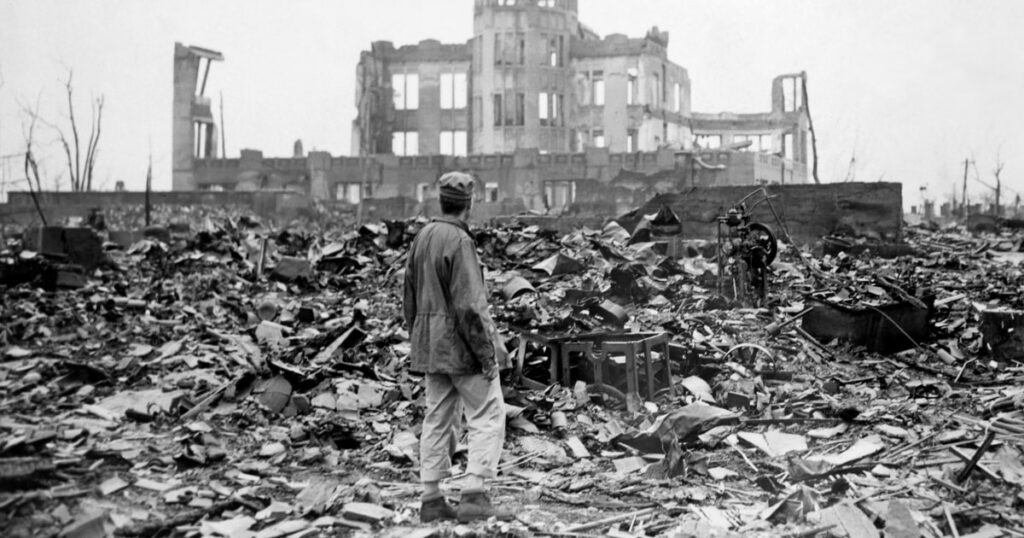
HIROSHIMA, Japan — For more than half a century, chimes have rung out across the Japanese city of Hiroshima every morning at exactly 8:15.
The solemn ritual marks the precise moment Aug. 6, 1945, when the U.S. bomber Enola Gay dropped the world’s first atomic bomb over Hiroshima, killing about 70,000 people instantly.
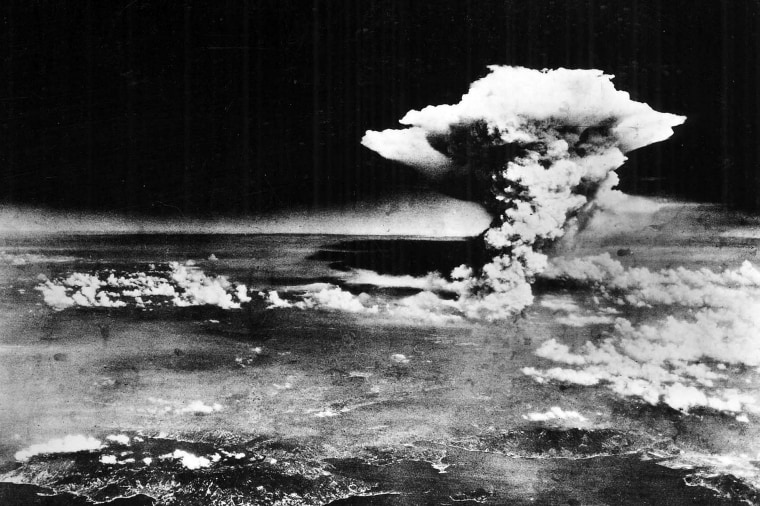
On Wednesday, people in Hiroshima commemorated the 80th anniversary of the devastating attack, as nuclear fears mount globally amid unresolved military conflicts in Ukraine and the Middle East.
In a one-minute silent tribute, the city remembered the widescale death and destruction caused by the 10,000-pound bomb, which created a huge mushroom cloud that rose to more than 60,000 feet.
“It is our duty to convey the reality of the atomic bombings not only to the people of Japan but also to the people of the world,” Japanese Prime Minister Shigeru Ishiba said in a speech.
Initially meant to strike a T-shaped bridge, the bomb veered instead toward an exhibition hall with a distinctive dome, which after the explosion was the only building still standing within a 1-mile radius.
The blast unleashed a whirlwind of fire and force, incinerating thousands of people. Then came the radioactive black rain, which fell over the city, silently poisoning countless more.
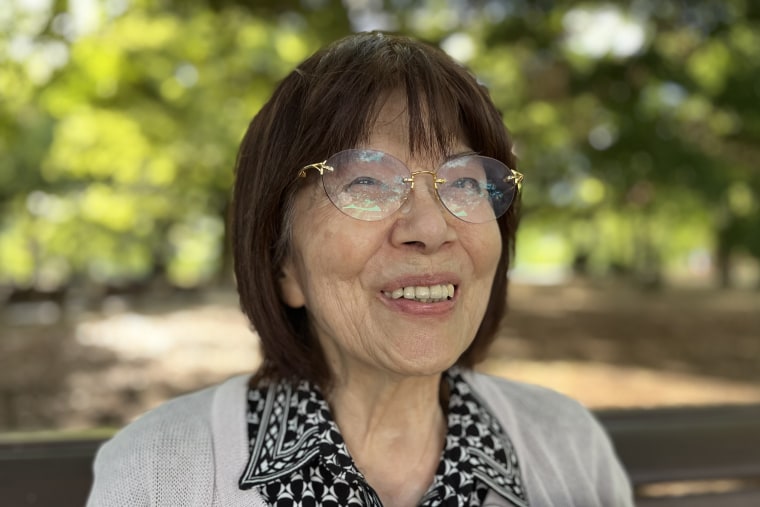
Teruko Yahata was 8 years old at the time.
Yahata, who is now in her 80s, says she still has a scar from when she was hurled by the blast. Fearing another bomb, she huddled under a blanket with her family.
“I didn’t really understand what it meant to die,” Yahata said, “but the warmth I felt at us dying together … I still remember to this day.”
Three days after bombing Hiroshima, the U.S. unleashed a second atomic bomb on the city of Nagasaki that killed another 40,000 people immediately.
The unprecedented bombings hastened Imperial Japan’s surrender and the end of World War II, most historians say, though at the price of nearly a quarter-million lives.
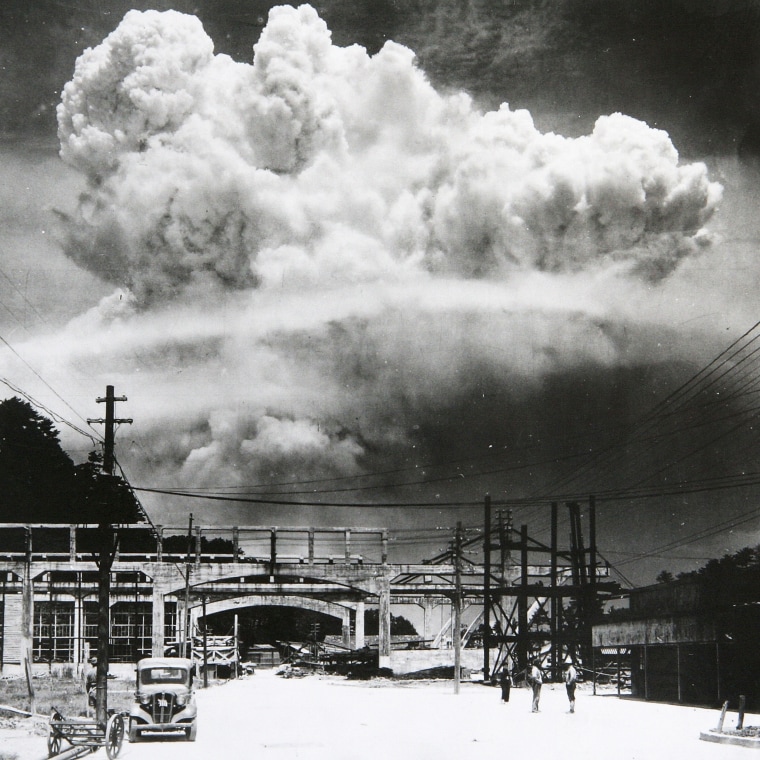
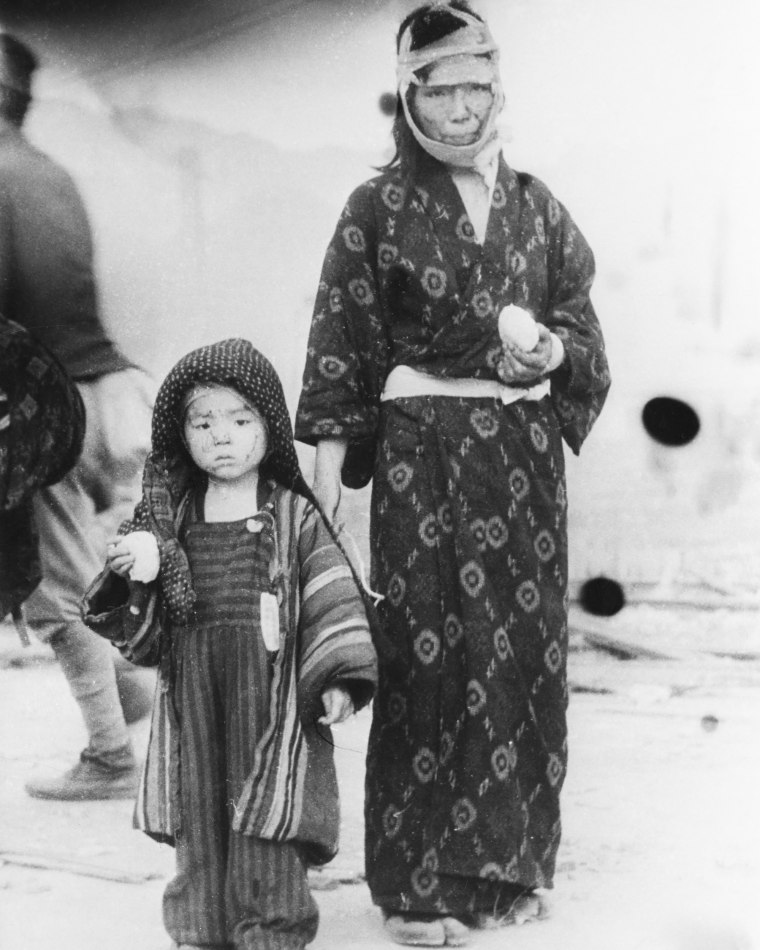
From the ashes, Hiroshima was rebuilt into a busy city of more than a million people, drawing tourists from around the world.
Near the hypocenter, where the bomb detonated about 2,000 feet above, is a peace memorial park and museum that includes the iconic atomic dome. Using virtual reality headsets, visitors can immerse themselves in the bombing and its brutal aftermath while touring the park.
Yet, the bombing still feels visceral to Hiroshima survivors, who are called hibakusha, or “bomb affected persons.” Now more than 86 years old on average, they have spent most of their lives struggling with illness, depression and discrimination.
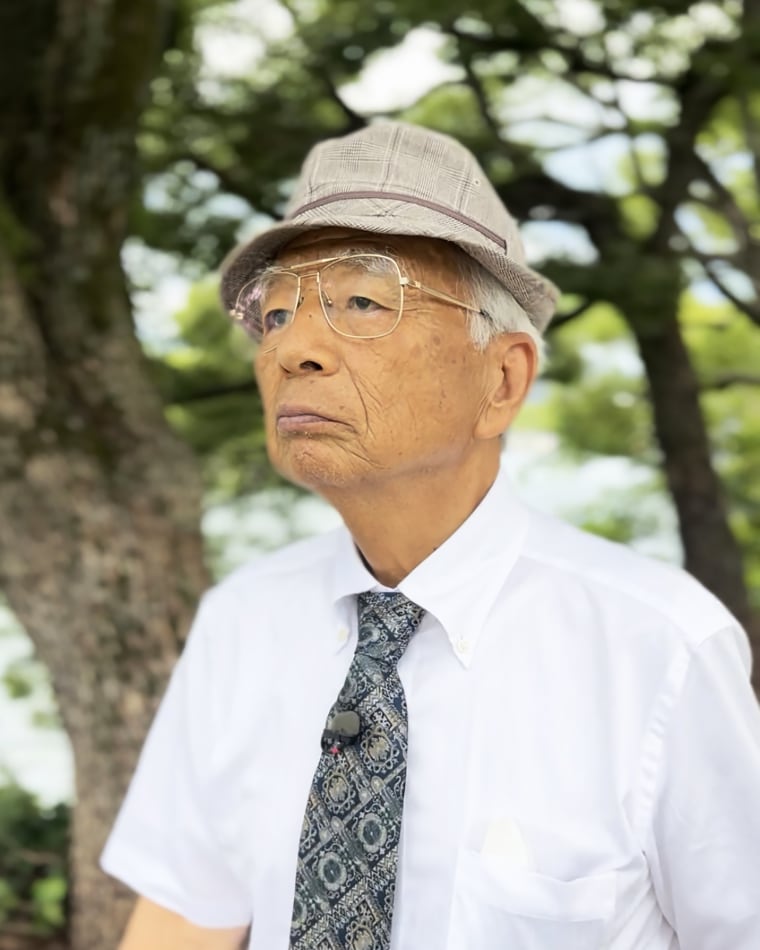
Kunihiko Iida, whose father was killed in the war and whose mother and older sister died shortly after the bombing, is now 83, defying predictions that he would not live to the age of 20.
Those who say the attacks on Hiroshima and Nagasaki saved lives, he said, “don’t know the reality of a nuclear bomb.”
Last year, the work of Japanese survivors’ group Nihon Hidankyo was awarded the Nobel Peace Prize.
Toshiyuki Mimaki, the group’s co-chair, is among those advocating nuclear disarmament and making sure that Hiroshima is neither forgotten nor repeated.
“We’re in a very dangerous situation with Russia, Ukraine, Israel, Iran,” he said. “Even a single nuclear bomb would mean disaster.”
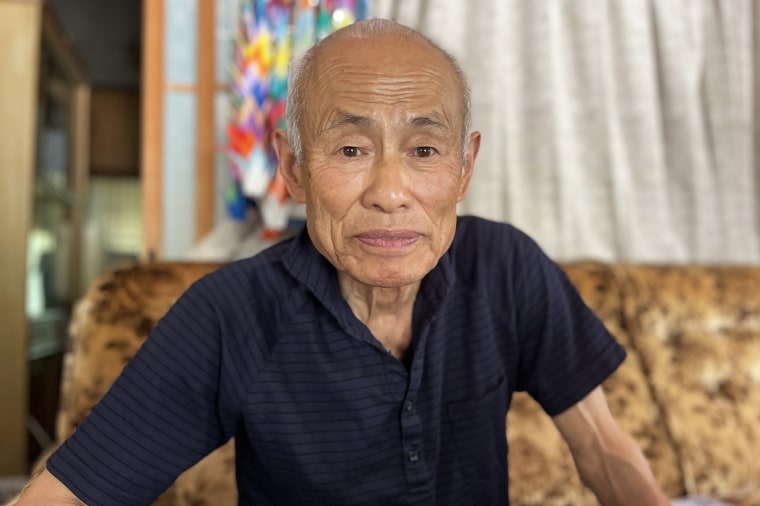
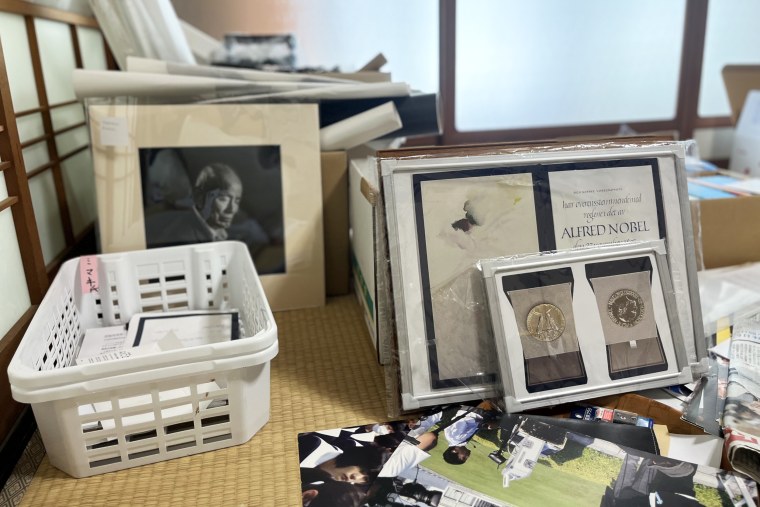
Janis Frayer / NBC News
According to the International Campaign to Abolish Nuclear Weapons (ICAN), the world’s nine nuclear-armed states — Russia, the United States, China, France, Britain, India, Pakistan, Israel and North Korea — spent more than $100 billion on nuclear weapons last year, up 11% from 2023.
The increase in spending on nuclear weapons contrasts with public attitudes about them. In a June survey of Americans by the Pew Research Center, 69% of respondents said the development of nuclear weapons had made the world less safe, compared with 10% who said it had made the world safer.
Nearly 70% of Japan’s atomic bomb survivors believe nuclear weapons could be used again, according to a poll this year by Japanese news agency Kyodo News.
Hiroshima survivor Setsuko Thurlow, 93, lost 10 members of her family in the bombing. She said she remembered seeing a procession of people fleeing to the hillside who “looked like ghosts.”
“Everybody’s hair was just standing up, raised upwards, and the skin and the flesh was coming off from the bones,” she said.
Thurlow, who went to the U.S. to study in 1954 — the same year the U.S. tested a hydrogen bomb 1,000 times more powerful than the one that destroyed Hiroshima — has spent her life campaigning for nuclear disarmament, accepting the Nobel Peace Prize in 2017 on behalf of ICAN.
“I beg world leaders to stop and come to the negotiation table. Diplomacy needs to have greater attention,” she said in a video interview from Toronto. “It’s not nuclear weapons, but diplomacy, exchange of words and ideas.”
The number of hibakusha is dwindling, raising fears that living memory of the Hiroshima and Nagasaki bombings will soon be gone. As of the end of March, there were 99,130 survivors nationwide, according to the Japanese newspaper Asahi Shimbun.
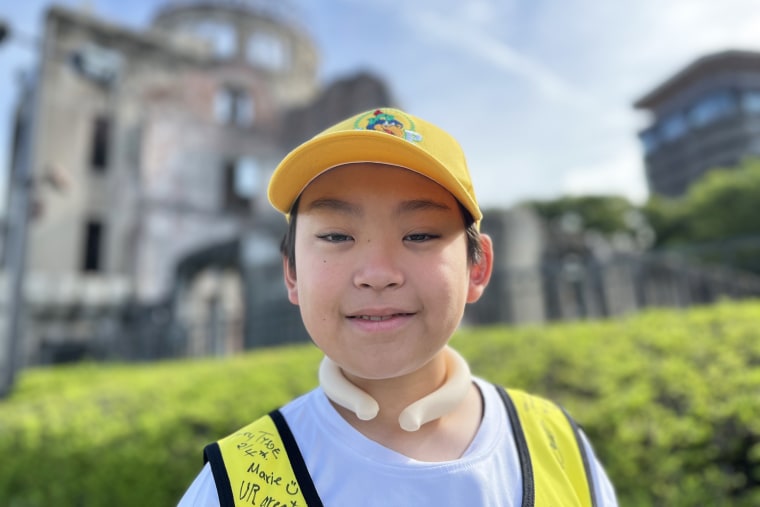
Responsibility for remembering is being taken up by young people such as 12-year-old Shun Sasaki, who has been giving foreign visitors free guided tours of Hiroshima Peace Memorial Park since he was 7.
Sasaki said that even though his great-grandmother was among those killed in the bombing, for a long time his family barely acknowledged it.
“The scariest thing that might happen in the future is to forget what happened a long time ago,” Sasaki said.
“I don’t want anyone to have the same experience as my great-grandmother.”
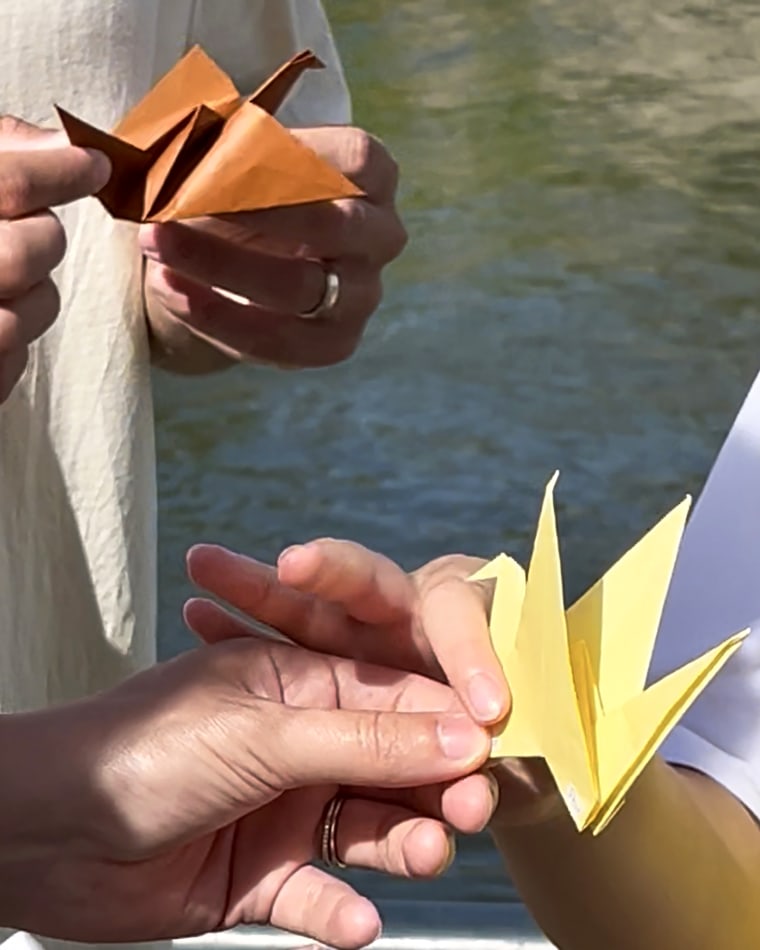
Sasaki’s is not the only family that has avoided talking about that day. More than 70% of the respondents in the Kyodo poll said they had never spoken about their experiences.
Even so, some feel it is their duty to speak up.
“As long as I live, I want to continue telling,” Yahata said. “I’m a survivor.”
Janis Mackey Frayer and Mai Nishiyama reported from Hiroshima, Arata Yamamoto from Tokyo, Michael Fiorentino from London and Peter Guo from Hong Kong.
 Latest World Breaking News Online News Portal
Latest World Breaking News Online News Portal


